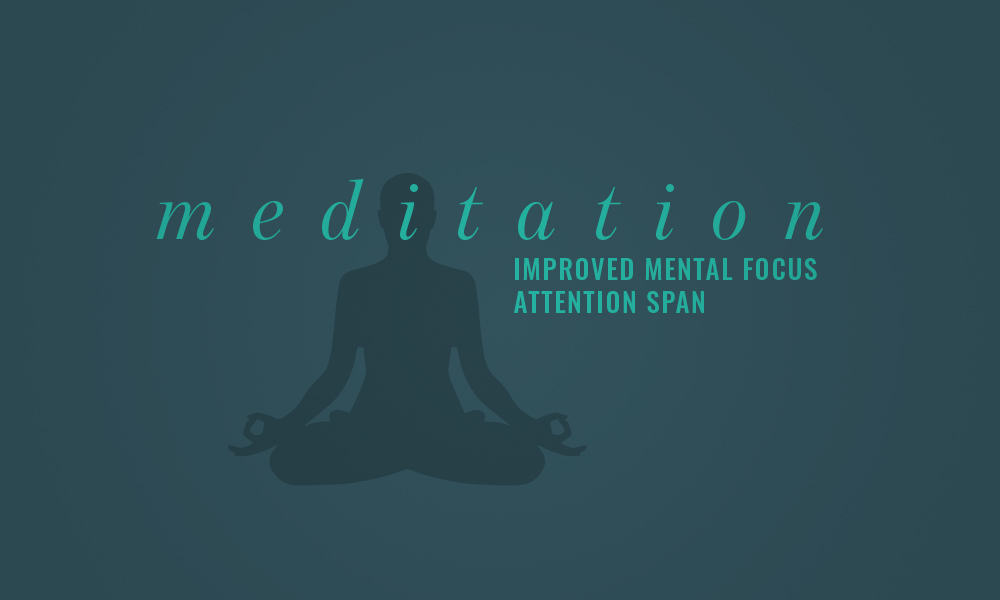People are well aware of the benefits of toning the physical body. But for some reasons, biased or unbiased, the prospects of working out at the mental gym to sharpen our minds is still greeted with great scepticism. An increasing number of research studies are now working to find definite evidence in this respect, and many have been instrumental in dispelling such doubts existing in the minds of people.
Further, saying it all aloud, a recent study has led the researchers to concrete evidence, which when put in simple words would read- “Meditators have stable brains and stable thoughts.” The study published in the Journal of Neuroscience suggestibly concludes that “the brain functions of people regularly practicing meditation are altered, which leads to the improvement of their mental focus and attention span.” Now in this increasingly stressful world, this should definitely bring cheer and optimism to those who are experiencing shrinking attention spans at their institutions/work places. Compared to non-meditators, meditators are found to be much better equipped to handle the wandering mind and brain activity is definitely quieter in those practicing meditation.
With a longstanding interest to understand how meditation affects the brain, an Italian neuroscientist, Giuseppe Pagnoni, undertook this study. The study discovered that meditation not only enables one to change patterns in the brain, but also leads to improved cognitive performance, conferring an advantage in focusing a task mentally. The meditator group was compared to a control group who never meditated, but were of the same age and similar educational background to eliminate any bias in the study. The brain patterns of the subjects were evaluated through Magnetic Resonance Imaging (MRI) brain scans. Interestingly, the study discovered that those who meditated had more stability in their brain's ventral posteromedial cortex (vPMC). The vPMC is a region in the underside of the brain (lying in the middle of the head) which has been linked to and held responsible for spontaneous thoughts and mind-wandering.
The ability of subjects to focus was evaluated on a tedious task demanding intense focus using the rapid visual information processing test. Subjects looked at flashing numbers on the computer screen in a random order, and whenever they saw a particular target sequence, they were supposed to press a button. If the participants waited for too long, they missed the target button, and in case the button was hit when the target didn't appear, it led to a false alarm. The scoring evaluated the amount of target sequences and the false alarms one got. Higher the sequences detected and lower the false alarms, higher came out to be the score suggesting better mental focus.
Meditators did the task better than non-meditators (control group) by spotting more target sequences and with fewer false alarms. Interestingly, results of the study suggested that the benefits of meditation extended far beyond the practice. Another important finding was that a direct relationship between brain function and mental focus existed, and this was true for all subjects; both meditators as well as non-meditators. Thus, stability of vPMC was linked to test performance, and suggested vPMC stability to be an important indicator of focused mind for all; including both meditators as well as non-meditators. The study provides definite biological evidence for changes meditation can potentially lead to; and suggests that our behaviour (practicing meditation here) may have a considerable impact on our mental function.
Earlier studies have also suggested an impact of meditation on improving mental focus. It has been demonstrated that meditation leads to an increase in a number of brain-signalling connections (nerve fibres), along with expansion of myelin, the protective fatty insulation surrounding nerve fibres. Such effect has been observed in the anterior cingulate cortex region of the brain, which is believed to help regulate behaviour, and improve mental focus by increased nerve activity. In two different researches, one on students from the University of Oregon and the other on students at China's Dalian University of Technology, researchers found greater density of axons (nerve fibres) as well as increased myelin. Here also, the effects were seen in the anterior cingulate cortex region of the brain, which helps regulate behaviour.
The results of the present study, nevertheless, prove to be a great evidence support base for metaphysical dynamics of meditation to the western world which often looks at it with great scepticism. Hopefully, this would help large number of people emulating western culture to open up and explore the realms of a deep meditative mysticism. If you happen to be one of them, then “Brahm Gyan”, an eternal technique exploring the depths of tranquil inner-consciousness offers an ideal platform for it. And needless to say, you would yourself stand witness to not only a better focused mind with enhanced attention-span, but also improved health, wellness, and lifestyle in totality.

